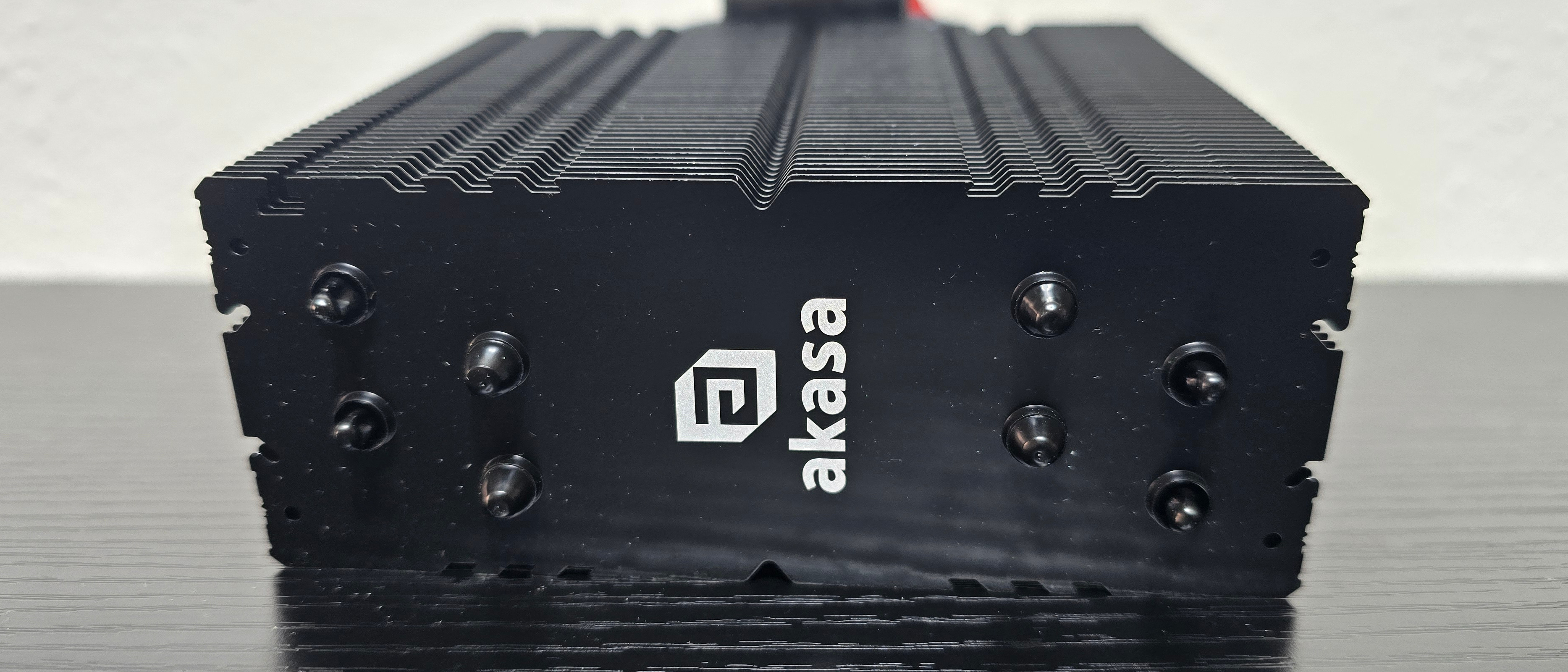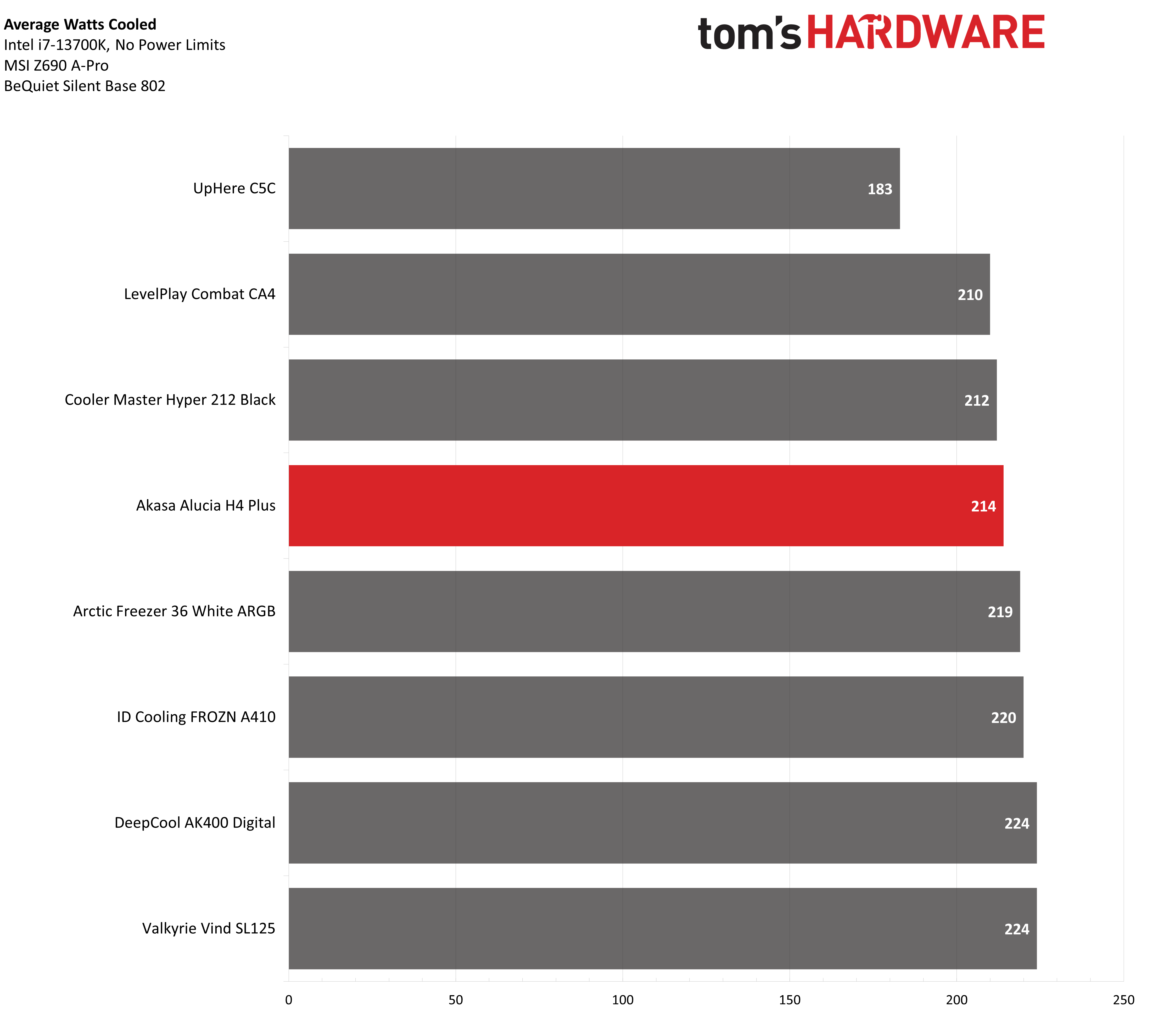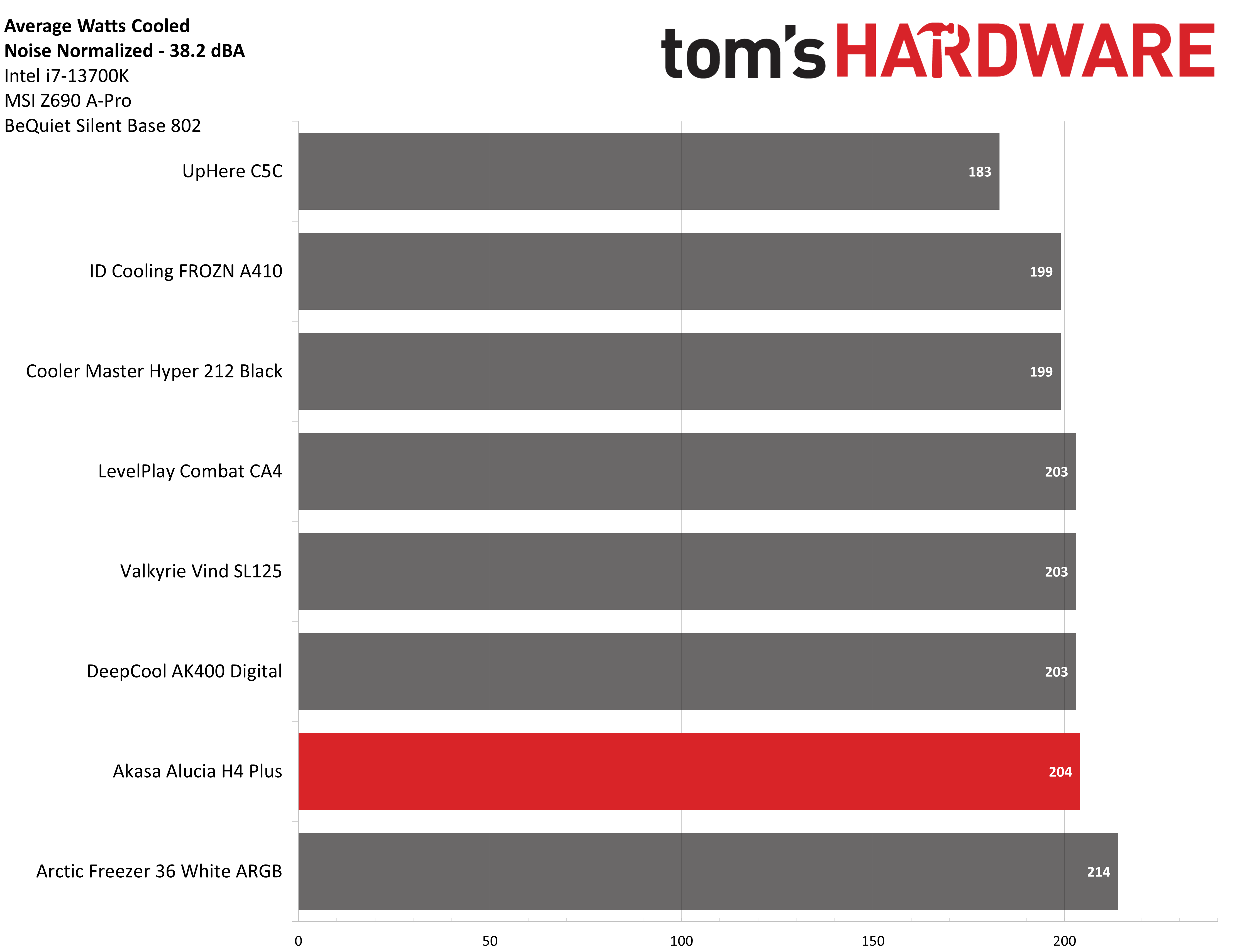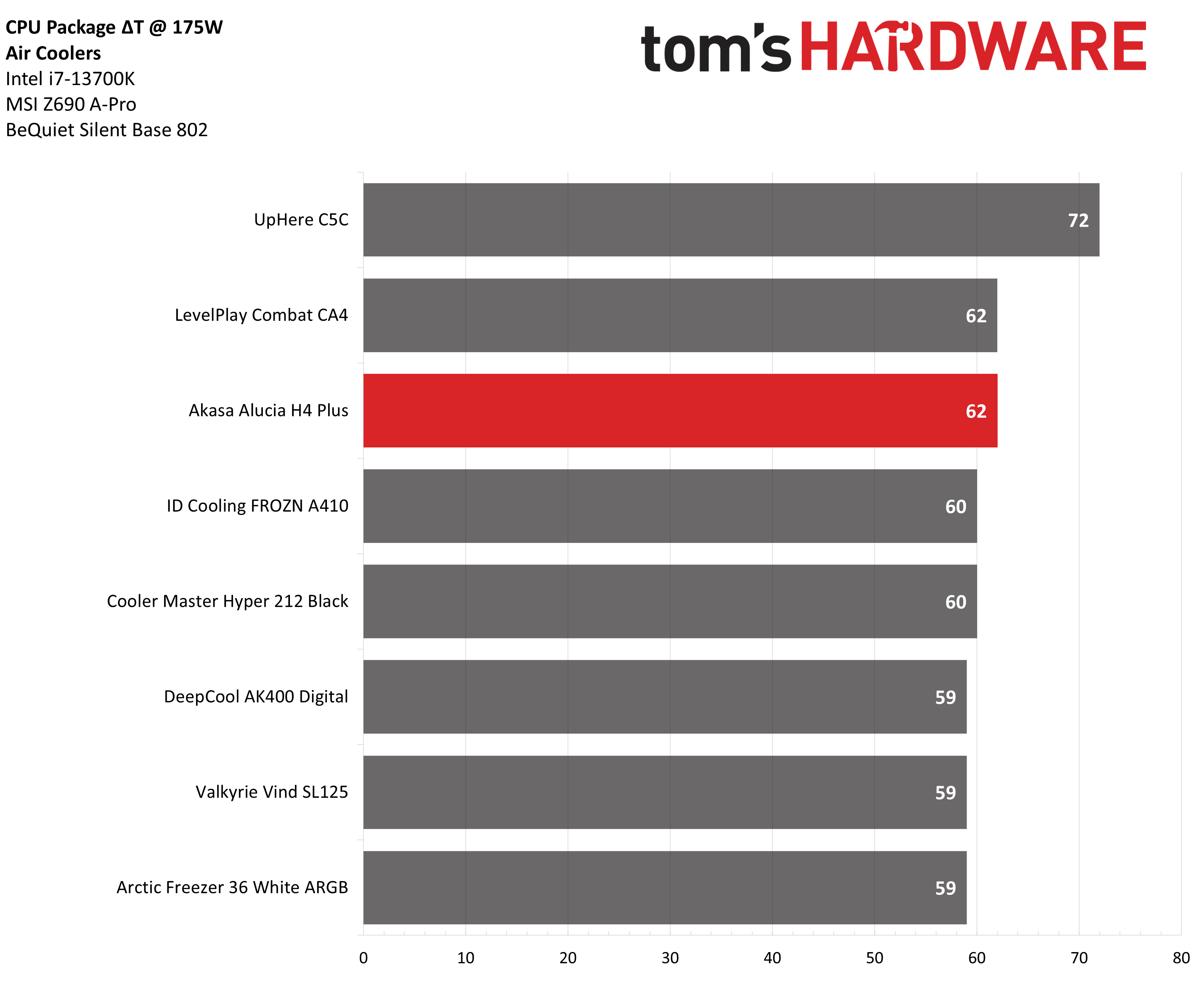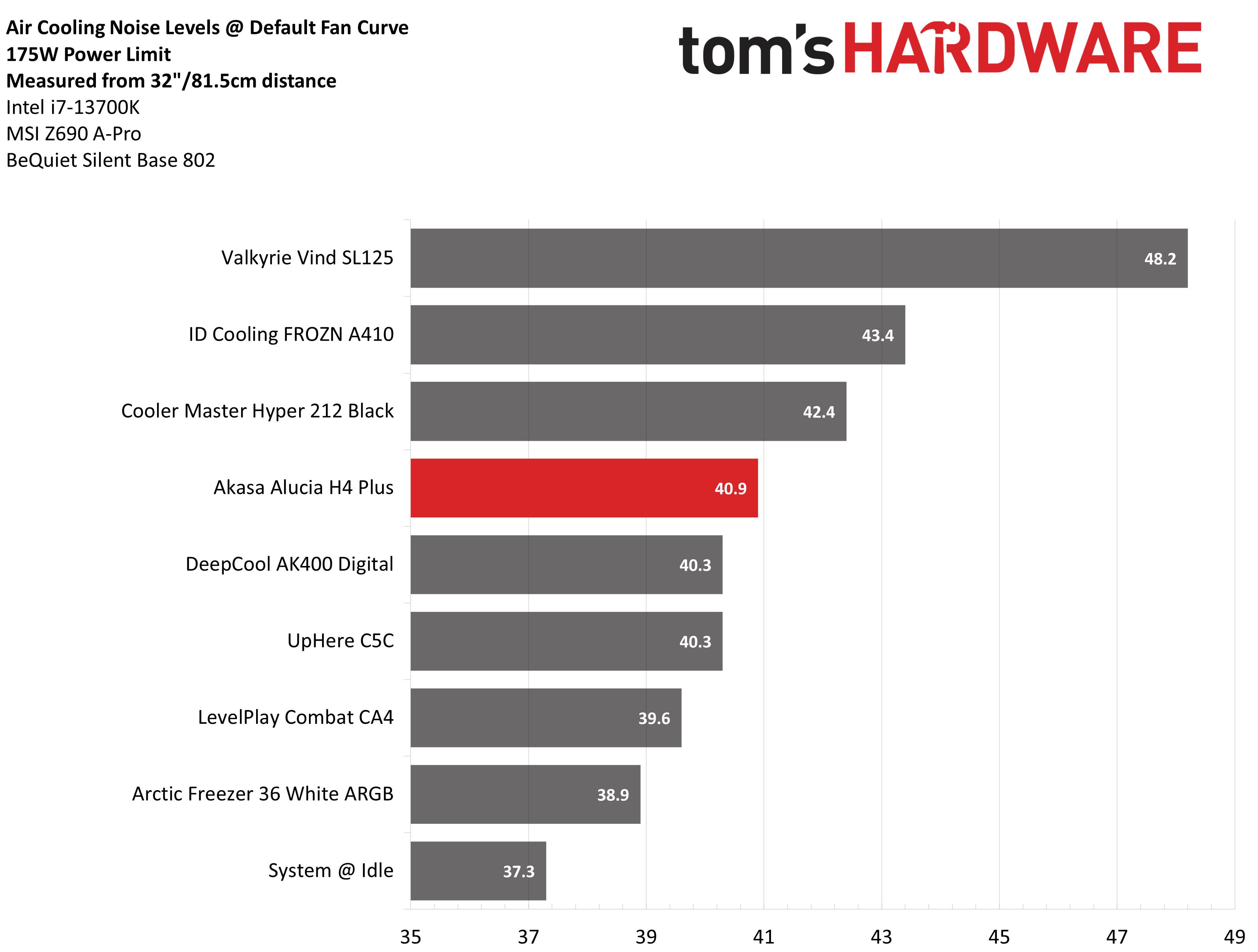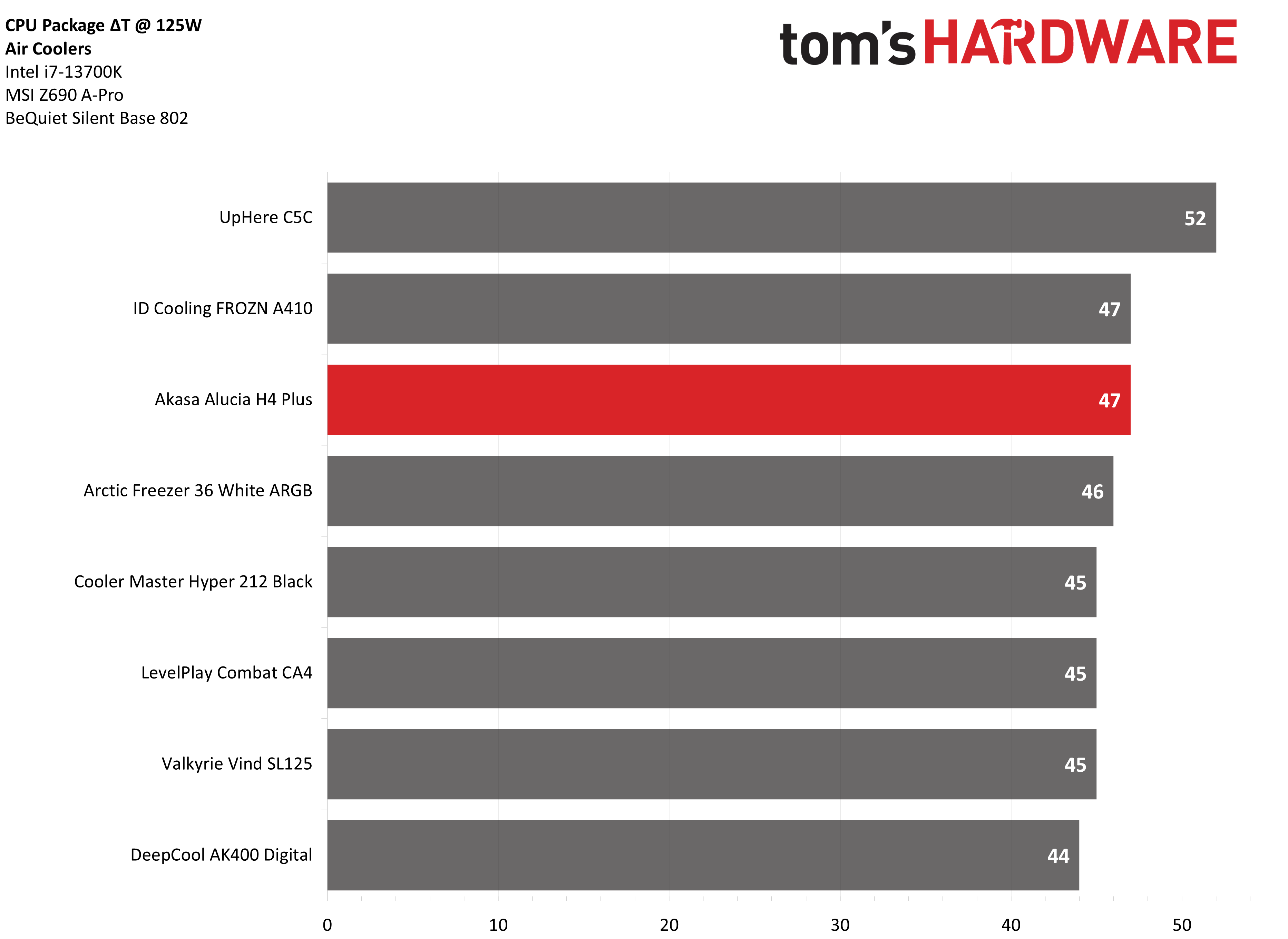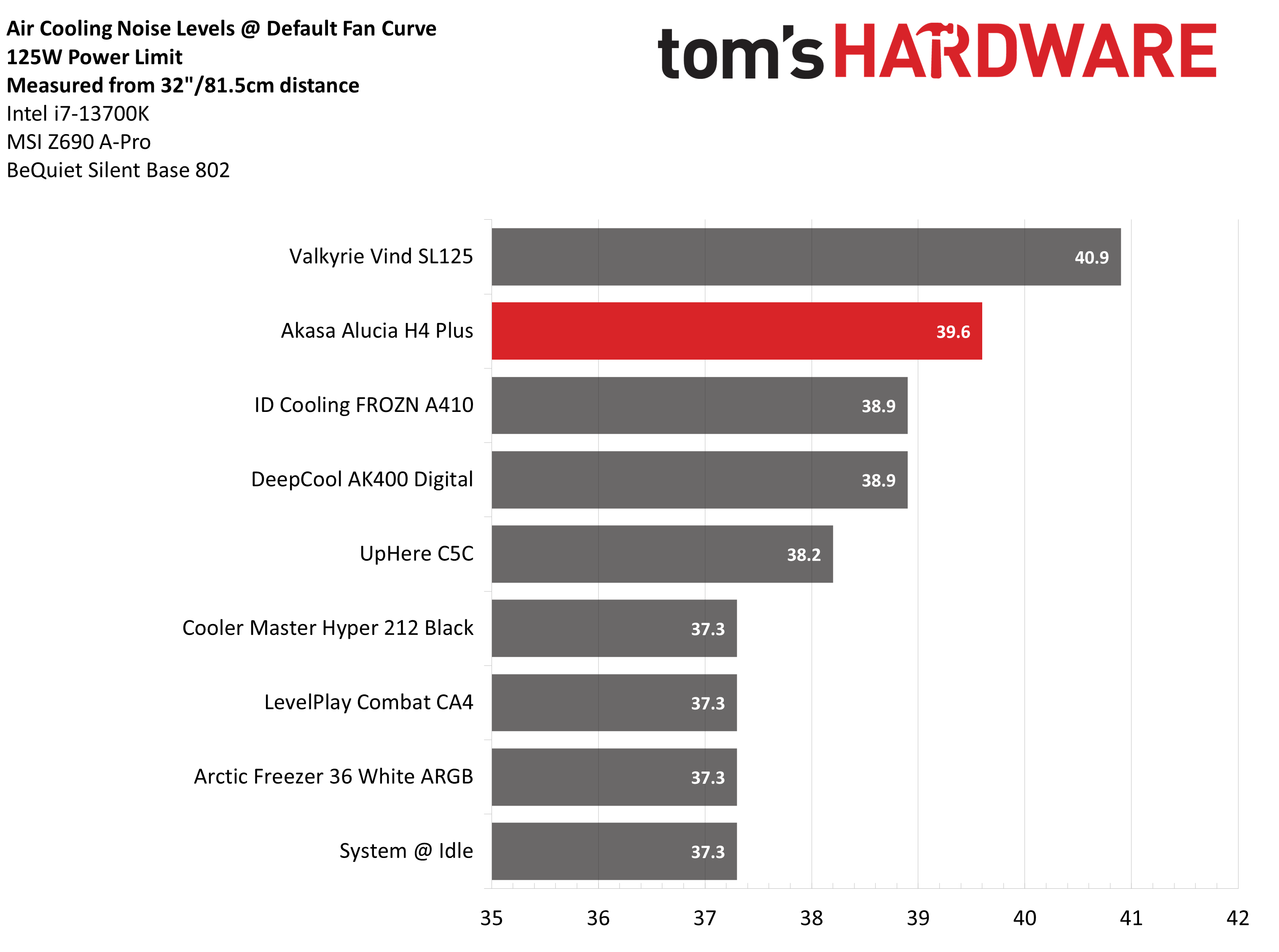Why you can trust Tom's Hardware
Thermal results without power limits
Without power limits enforced on Intel’s i7-13700K, the CPU will hit its peak temperature (TJ Max) and thermally throttle with even the strongest of air coolers. When the CPU reaches its peak temperature, I measured the CPU package power to determine the maximum wattage cooled to best compare their performance.
This review has limited results compared to previous reviews because I only included results from similar single-tower air coolers in the charts, with the goal of making it easier to compare the Alucia H4 Plus to products that it competes against most directly. If you’d like to see a larger list of results, our recently released review of the Levelplay Combat Air C4 has a larger list of results for comparison, but it lacks the results from the Akasa cooler we’re looking at here.
With 214W cooled in this test, the Alucia H4 Plus has middle-of-the-road performance.
To achieve this level of performance, the unrestricted fans run up to 42.9 dBA. This is a little louder than the noise levels of most other single-tower coolers I’ve tested.
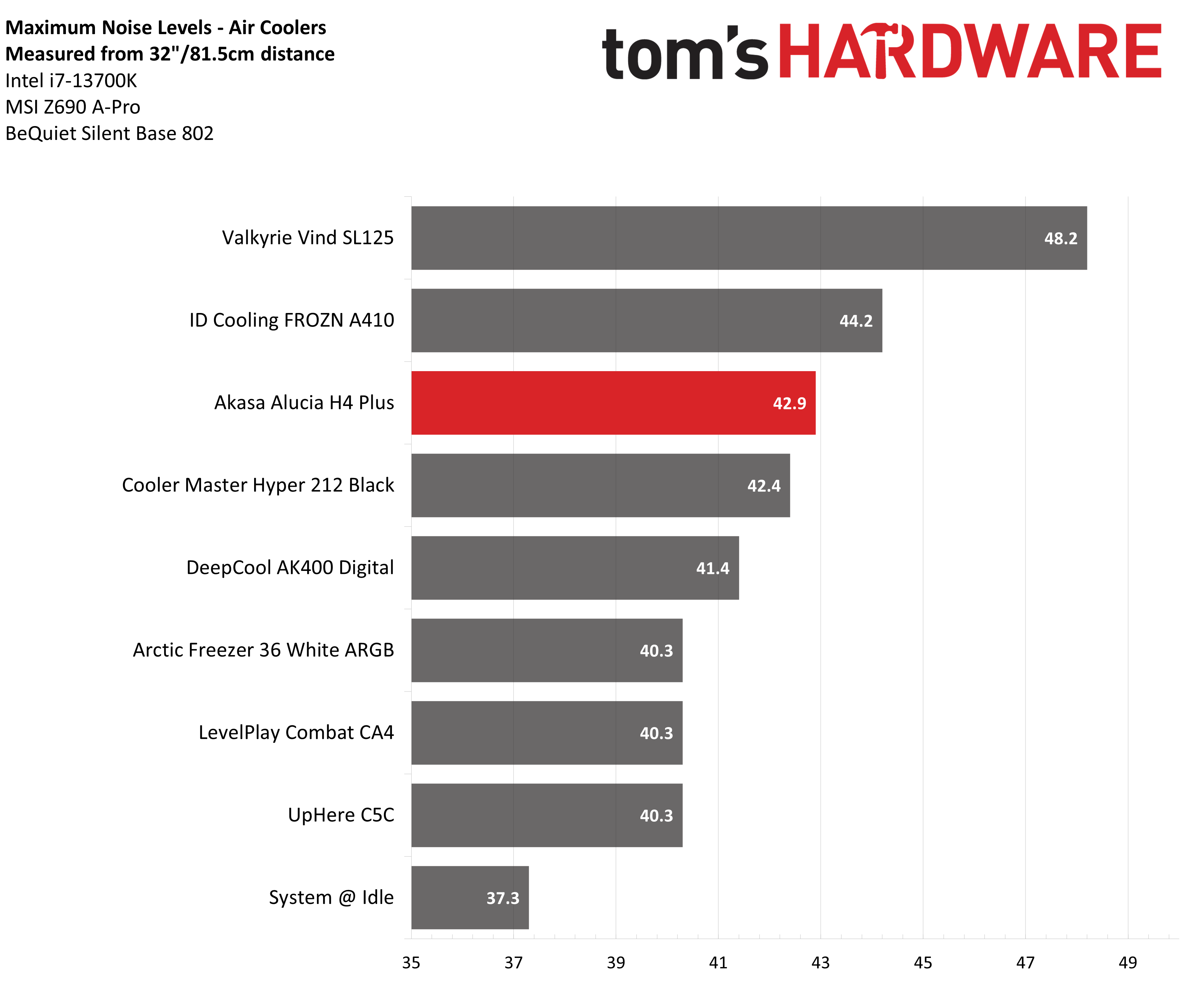
Thermal results with noise normalized to 38.2 dBA
Finding the right balance between fan noise levels and cooling performance is important. While running fans at full speed can improve cooling capacity to some extent, the benefits are limited and many users prefer a quieter system. With this noise-normalized test, I’ve set noise levels to 38.2 dba. This level of noise is a low volume level, but still audible to most people.
With the noise of the fans limited to 38.2 dBA, Akasa’s Alucia H4 Plus narrowly achieved second place in our results for single tower air coolers – cooling 204W during low noise testing.
175W Cinebench results
Most coolers on the market can keep Intel’s i7-13700K under its peak temperature if the power consumption is limited, so for this test, we’ll be looking at the CPU’s actual temperature.
Get Tom's Hardware's best news and in-depth reviews, straight to your inbox.
Akasa’s Alucia H4 Plus kept the CPU at an average of 85 degrees C during testing (62C over an ambient of 23C). This isn’t necessarily bad, but it was one of the warmer results among single-tower air coolers we’ve tested. Noise levels registered at 40.9 dBA, which is an average noise level for these types of coolers.
125W Cinebench results
The lowest power limit I test with Raptor Lake CPUs is 125W. This is a high enough limit to allow the CPU to maintain its base clock speeds even in the most intensive tests, and most coolers should be capable of keeping the CPU below TJ Max (the max temperature before throttling) – even low-end coolers.
Really, thermals do not matter in this scenario, because even Intel’s stock cooler can handle a load like this with ease. Noise levels, rather than CPU temperature, are the most important factor here.
When it comes to noise levels in common scenarios, the Akasa Alucia H4 Plus measured 39.6 dBA. This is far from loud, but it is louder than most other coolers of this type in our results.
Conclusion
Akasa’s Alucia H4 Plus provides essential cooling performance and has a distinctive look with its black cooler tower and dark blue fan. However, at $38.95, it’s hard to recommend when many quieter competitors are available for $30 USD or less.

Albert Thomas is a contributor for Tom’s Hardware, primarily covering CPU cooling reviews.
